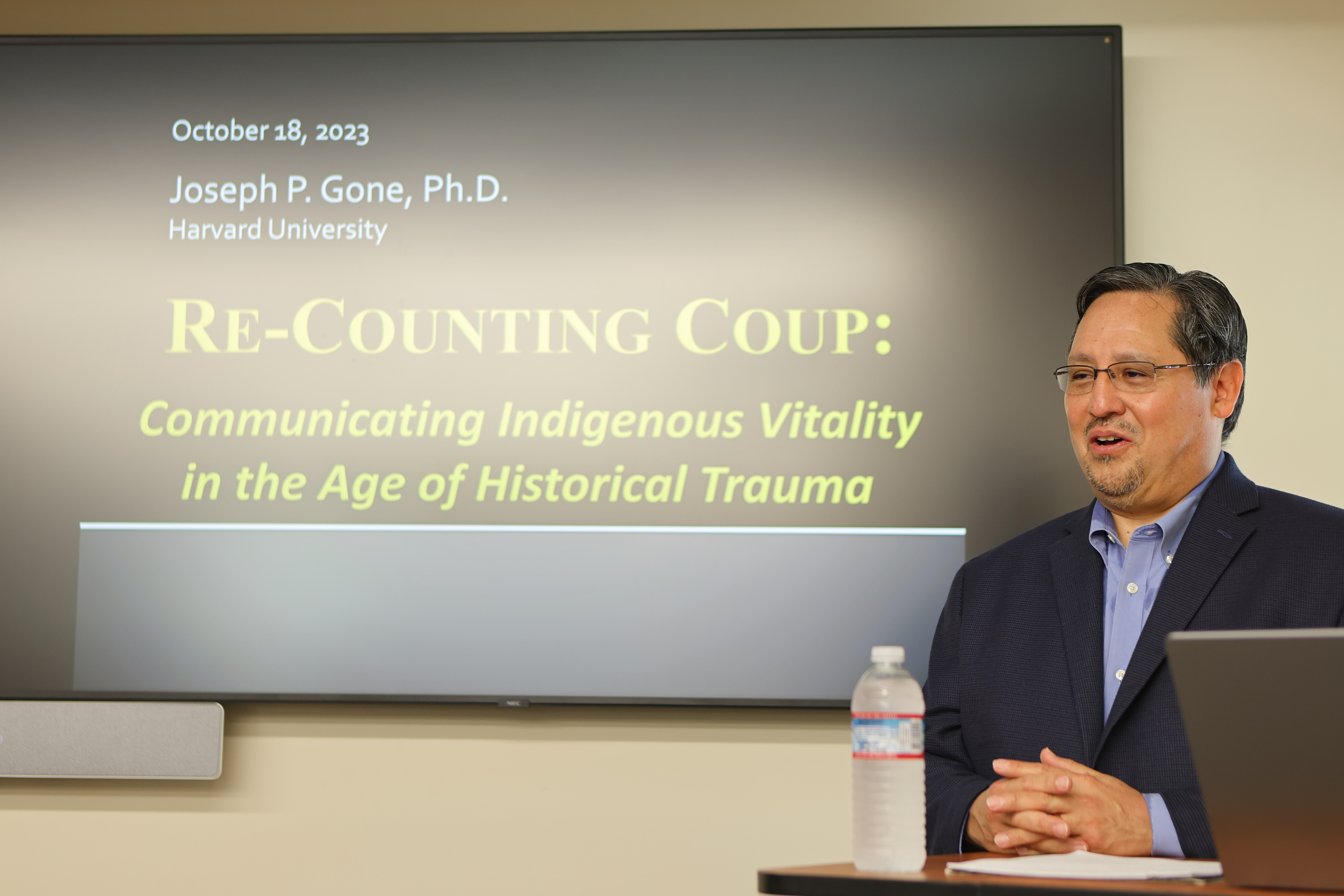Harvard professor Joseph P. Gone introduced a new approach to improving Indigenous mental health with a focus on intergenerational trauma, in a Wednesday talk titled “Communicating Indigenous Vitality in the Age of Historical Trauma.”
Speaking at the Center for Comparative Studies in Race and Ethnicity (CCSRE) Conference Room as part of the Faculty Seminar Series, Gone described a “neo-traditional” approach that transcribes coup tales to a modern context, in order to encourage better community outcomes and a rebirth of pride.
To an audience of about 40 students, professors and administrators, Gone explained the concept of a coup tale, in which members of a tribe would recount their war deeds. Gone said that coup tales formed a foundation of his tribe, the Aaniiih-Gros Ventre. Members of the Aaniiih would share coup tales in a variety of contexts, ranging from the aftermath of a successful raid, to when the center pole was knocked down during the Sun Dance, to when children were named and when their ears were pierced.
But, Gone said, coup tales promote two contrasting ideals: mastery and violence. Coup tales promoted mastery in elevating ambition, achievement and “the eruption of liveliness over bitter circumstances,” Gone said, but they also promoted intense violence, including enslavement, arming children and killing civilians.
Within his talk, the central question Gone wrestled with was this: how does one preserve mastery while repudiating violence?
Gone answered this question by introducing a neo-traditional approach, in which violence from coup tales is replaced with a modern context. Winning a sports competition, for example, could be the occasion for telling a modern coup tale, with descriptions of how one overcame adversity and persevered until finally triumphing over a worthy opponent.
By bringing the coup tale into the modern day, the legacy of historical trauma which had often held Indigenous communities back, could be replaced by a culture of “survivance,” Gone said. According to Gone, this new approach to Indigenous psychology could have revolutionary consequences. Gone said it could lead the way to a beautiful “eruption of liveliness.”
This approach to addressing historical trauma could have direct impacts on Indigenous communities of today, according to Gone. Gone cited the work of Lakota psychologist Maria Yellow Horse Brave Heart in pointing out that colonial injuries suffered by Indigenous communities persist into the present day, as historical trauma is cumulatively escalating and cross-generationally transferred.
When asked about the implications of Gone’s work at Stanford, Native American Studies Associate Director Preston Taylor Stone said that it was a useful perspective.
Stone wrote that “Indigenous students on campus continue to thrive despite on-going systemic violence under American settler colonialism. The anticolonial ambitions of Dr. Gone’s work, which emphasizes healing and promotes survivance — survival & resilience — remain very productive for students.”
For many in the audience, Gone’s talk was highly impactful, including Tahayla Quġluq Baker ’24, an Iñupiaq student. Baker wrote that she had “naturally gravitated toward Dr. Gone’s research” as a frosh. “Many Indigenous communities are in the process of healing from historical trauma, but more importantly, many Indigenous communities are reclaiming cultural practices that were historically discouraged or criminalized,” Baker said.
Baker expressed her gratitude for his visit to campus, writing that “Dr. Gone validated our goals as Native students.”
Gone’s ideas also resonated with staff members of the CCSRE department. Education professor Alfredo Artiles, who directs the CCSRE’s Research Institute, wrote in an email that the CCSRE is “deeply invested in designing programming that will inspire connection and collaboration in [its] interdisciplinary community.”
